HOW CAN WE HELP YOU? Call 1-800-TRY-CHOP
In This Section
From Being Your Own Advocate to Balance: More Stories From Women in STEM
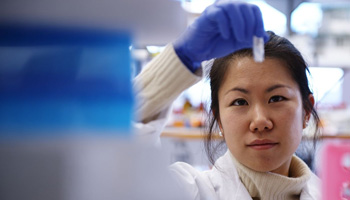
Check out Part Two of a series featuring women in STEM leading their respective fields.
Welcome to the second installment of our Women in STEM gallery! Continuing our yearly tradition of highlighting scientists who work in fields that have historically been underrepresented by women, we are excited to spotlight five more researchers at Children’s Hospital of Philadelphia and their words of advice for the next generation of female scientists. In the first part of this series, we featured scientists working in fields ranging from injury research to neurobiology.
In this segment, we highlight individuals who study how to develop novel cancer treatments, reduce bullying and aggression, strengthen public health programs for mothers, and much more. United in their mission to advance children’s health, they share stories that will inspire, including what drives their research and the advice they would offer to those aspiring to a career in STEM.
Meredith Matone, DrPHS, MHS
Scientific Director
PolicyLab
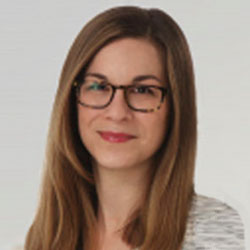
Meredith Matone, DrPHS, MHS
I am a public health practitioner and scientist focused on evaluating and strengthening programs and services delivered to mothers and young children. I chose this path because I am passionate about improving the health and well-being of all women and infants. I believe strongly that the public health toolbox is a powerful one for improving health equity.
I am driven by the sheer amount of work to be done toward reducing health disparities among mothers and children but also by the many opportunities for innovation and partnerships. In this work, I collaborate with public agencies, community organizations, and an amazing team of multidisciplinary researchers, and I am motivated and grateful everyday by their commitment, smarts, and energy.
Please come join us! Science and innovation are always better with diverse perspectives. Your voice, point of view, and lived experiences are important contributions to the scientific process. Find supportive mentors, surround yourself with other smart women, and speak up often!
Rochelle Bagatell, MD
Solid Tumor Section Chief
Center for Childhood Cancer Research
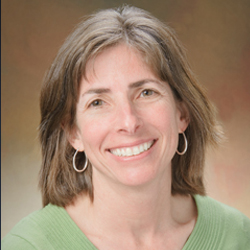
Rochelle Bagatell, MD
My research focuses on clinical trials of new combinations of therapies for children with high-risk and relapsed neuroblastoma. I have the opportunity to design and execute clinical trials that evaluate the effects of new therapies. What I like most about what I do is that it combines clinical care, biostatistics, and lab-based science. I work with team members who have complementary expertise to write clinical trial protocols that allow us to study new therapies.
Once a study opens, I work with the physicians caring for patients to ensure that new regimens are delivered according to a uniform plan. I then work with radiologists, pathologists, and biostatisticians to determine whether patients are responding better to the new therapies. The trials I run have a translational component, so I also have the opportunity to collaborate with laboratory-based scientists. We use patient specimens to learn more about the mechanisms that underlie the clinical outcomes we observe, and we try to take this information forward as we design the next generation of clinical trials.
Some advice for women pursuing a STEM career that I found incredibly helpful as I got started was that for a period of time, it is OK to “pedal at the back of the pack,” while balancing many responsibilities outside of work. This means staying connected to what is happening at the leading edge of the field but acknowledging that you have competing demands for your time. It can be difficult for anyone to deal with competing demands, but at times, this can be especially challenging for women. Picturing myself pedaling at the back of the pack but staying on course was so helpful, and I’m really grateful to the colleague who introduced me to this concept.
Brooke Paskewich, PsyD
Behavioral Health Research Manager
Violence Prevention Initiative
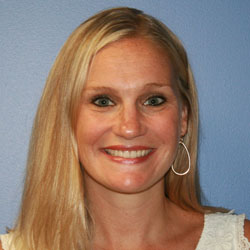
Brooke Paskewich, PsyD
My research focuses on development, implementation, and evaluation of school-based prevention programming, particularly those that address aggression and bullying. Through a focus on translational research and implementation science over the last 15 years at CHOP, I have developed school-focused implementation methods that integrate best practice — empirically supported strategies for aggression and bullying prevention — with procedures that foster the necessary school buy-in and engagement of staff from high-level administrators to support staff working in lunchroom and playground settings. I have expertise in approaches that ensure interventions feasibly and responsively meet the needs of schools, while also adhering to a rigorous research protocol.
My doctoral training prepared me as a clinical psychologist, however, as I neared the end of my graduate program, I made a shift in my career goals to not just practice clinically, but to focus on the science that informs practice. Thus, my path to a research career in STEM has been somewhat nontraditional. I encourage other aspiring women in science in similar situations to be persistent in pursuit of your goals. Be confident in your knowledge and abilities. Seek opportunities that may not be “prescribed” for you, and seek mentors who will advocate for your growth. But also, be your own strongest advocate — if a path doesn’t seem to exist, work with your team and institution to create one. It’s not a one-size-fits-all journey to a career in STEM, and you can get there!
Sogol Moustafi-Moab, MD, MSCE
Attending Physician
Center for Childhood Cancer Research
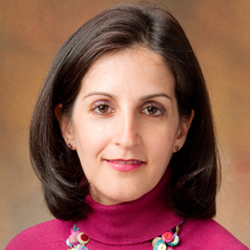
Sogol Moustafi-Moab, MD, MSCE
My research focus is on endocrine and metabolic late effects of childhood cancer therapy. The developing child is very vulnerable to unique late effects from cancer therapy including radiation, chemotherapy, surgery, and precision therapy. Endocrine late effects are the highest morbidity in pediatric cancer survivors. My research aim is to understand the unique mechanism of injury that predisposes to endocrine late effects, with the goal to prevent these late effects in lieu of only focusing on secondary prevention.
My drive to pursue this effort stems from the desire to ensure that every survivor of childhood cancer experiences a high quality of life that otherwise is impacted by adverse effects of cancer therapy. Ensuring healthy long lives with minimal complications is the driving force that energizes my research efforts and the need to continuously ask questions to improve status quo.
Women are equally talented and successful in STEM careers, but it is critical to foster this interest at early stages of a child’s education. I would highly encourage females to pursue a career in STEM fields given the unique strengths and perspective that we bring to the field with impressive collaborative (rather than competitive) efforts critical to success.
Tracy E. Waasdorp, PhD, MEd
Senior Research Scientist
Violence Prevention Initiative
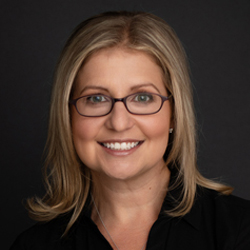
Tracy E. Waasdorp, PhD, MEd
My research focuses on reducing childhood aggression and bullying while improving children’s social and emotional skills through the design and/or assessment of school-based interventions. I also focus on the broader systems surrounding a child and how adults within those systems can best identify and intervene with aggression and bullying as well as promote positive peer relationships. My research at CHOP is driven by my desire to support the positive social and emotional health of children, and I use my methodological and statistical skills to do this.
As a student, I always had a desire to “work with children,” but I did not know of a career that would allow me to follow this passion and combine it with my interest in the sciences. I feel fortunate to have discovered this path, and my hope is that others are aware of the ability to combine a focus on social and emotional health with a career in STEM. Finally, for me, having strong female mentors and collaborators has been incredibly valuable both to my career and to my emotional health.